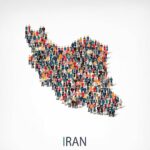“Saeed Aganji” was arrested after the presidential election incidents in 2009, along with two students from Shiraz named “Saeed Lotfi” and “Razieh Jafari.” He began his media activities in 2002 by completing journalism training courses provided by the Southern Media Center of the country. Aganji has worked freely with various newspapers and later joined the political service of the newspaper “Tahlil Rooz,” which was revoked and confiscated in 2009.
The intelligence forces of Fars province detained Saeed Aganji for 40 days in a detention center known as “Plate 100” in Shiraz. Aganji was released at the end of December 2009 with a 50 million Tomans bail and was tried in Branch 2 of the Shiraz Revolutionary Court, presided over by Judge “Yazdani,” and sentenced to three years of suspended imprisonment for three years and 91 days of correctional imprisonment. His charges were announced as “propaganda against the system,” “forming an illegal group,” “assembly and collusion against the system,” “communication with foreign media,” “organizing illegal gatherings,” and “acting against national security.” The verdict was confirmed in the appeals court.
Aganji has spoken about his detention conditions: “I spent more than a month in solitary confinement, and during this time, they changed my cell several times, and I was with different people. There were tired and sick men beside me, and I could hear the cries and prayers of women and girls who had been arrested in the cells next to me.” On the fourth night of his arrest, due to interrogation pressure, Saeed Aganji was transferred to the hospital and, after six hours, returned to solitary confinement. He describes the disordered conditions of Plate 100 detention center in Shiraz: “In the solitary cells (Plate 100) in Shiraz, there is only a thin carpet on the floor, and it is freezing in winter. A light is constantly on in the cell, four to five meters high, preventing sleep. The presence of a toilet hole in the cell, the lack of ventilation, and the unpleasant smell inside the cell, causing infectious and microbial diseases, all prevent the prisoner from having proper sleep, and this insomnia causes a lack of concentration during interrogation.” Saeed Aganji was psychologically tortured during interrogation, and the mental effects of this torture still bother him. He talks about these tortures: “During one of the interrogation days, they were torturing someone to the brink of death a few rooms away, and his cries and pleas filled the entire environment. I was terrified by hearing these screams. The interrogator asked me the same question several times, and each time I gave the same answer. After a short while, the interrogator wrote down the question and told me he would leave the room, and I should answer by the time he returned. After the interrogator left, it was not long before they brought in the person they were torturing, who was constantly moaning and screaming, into my room and began to torture and beat him behind me. He was constantly begging. All these events happened in a few minutes. There were two interrogators, and while one was constantly torturing the person, the other lifted me from the chair, cursed at me, slapped me, and stuck me to the wall. I could only say that I was a student, but they did not stop. After a few minutes, they took me out of the room and placed me in the corridor. At that moment, my interrogator came quickly and said, ‘This is a student,’ and they released me and handed me over to my interrogator.”
Saeed Aganji left Iran illegally in 2012 and currently lives in Finland. He collaborates freely with English and Persian language media.






